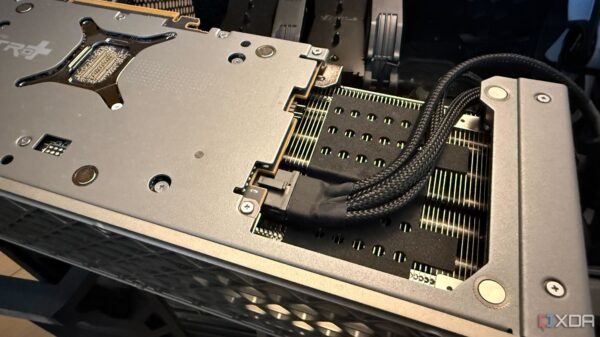Dell Technologies Inc. has announced a significant expansion of its AI Data Platform, a key component of its strategy to transform fragmented enterprise data into production-ready artificial intelligence (AI) solutions. This announcement was made during the Dell Tech World event earlier in the year, with insights shared by Varun Chhabra, senior vice president of ISG product marketing at Dell. He noted that the rapid acceleration of AI adoption in enterprises has shifted organizations from experimentation to deployment, highlighting the challenge of unlocking the value of enterprise data.
The Dell AI Data Platform aims to simplify complex data environments by seamlessly connecting and preparing data for AI applications, regardless of its location. This approach has already demonstrated its effectiveness across various sectors, including healthcare, where hospitals are utilizing real-time insights to enhance diagnostic speed, and manufacturing, where predictive analysis is helping to prevent equipment failures.
During a livestreamed presentation on theCUBE, Chhabra was joined by key Dell executives, including Travis Vigil, senior vice president of ISC product management, and Anahad Dhillon, director of product management. They discussed how the AI platform serves as a strategic foundation for operational AI at scale, moving beyond mere infrastructure considerations.
Revolutionizing Data Management with Dual Engines
The past year has marked a pivotal moment for AI, transitioning from a focus solely on computing capabilities to a greater emphasis on data utilization. Vigil emphasized that Dell’s solution moves away from traditional centralized storage methods. Instead, it activates data wherever it resides, ensuring that storage and data engines function optimally without creating bottlenecks. This separation of data processing from storage reduces friction and lowers costs associated with AI solutions.
The architecture of the Dell AI Data Platform relies on two main components: PowerScale and ObjectScale. PowerScale is designed for file-based, high-performance AI workloads, while ObjectScale provides scalable, S3-native object storage for extensive unstructured data sets. Together, these components enable organizations to handle both file and object data pipelines efficiently.
Another key aspect of the platform’s effectiveness is its ability to integrate next-generation hardware without causing disruptions. Dhillon pointed out that this means organizations do not need to undertake extensive upgrades every time new technologies emerge.
A noteworthy case study involves Maya HTT, a software development company that has leveraged Dell’s PowerScale and Nvidia GPUs to enhance data access for MDA Space, a Canadian satellite manufacturer. The integration of AI-powered solutions has significantly accelerated satellite production, enabling MDA Space to increase its output from one satellite every few weeks to multiple satellites daily.
Strategic Partnerships Driving Innovation
Dell’s collaboration with Nvidia Corp. plays a crucial role in enhancing the capabilities of its AI Data Platform. The integration of Dell’s data infrastructure with Nvidia’s accelerated computing and AI software, which includes tools like NeMo Retriever and Triton Inference Server, supports a modular AI Data Platform. This partnership ensures that enterprises benefit from solutions that have been rigorously tested and optimized by both companies.
Additionally, Dell is broadening the platform’s functionality through new data engine integrations that unify structured and unstructured data. Vrashank Jain, director of product management for the AI Data Platform, highlighted the importance of organizations having visibility into their data as AI adoption progresses. Dell’s unstructured data engine, built around Elasticsearch, offers rapid access to vast amounts of unstructured information, making it ideal for modern AI applications.
The collaboration with Elastic N.V. enhances search and discovery capabilities within the AI ecosystem. By embedding Elasticsearch into the Dell AI Data Platform, organizations can unify data access across diverse environments, facilitating a more intuitive interaction with information. Jain noted that this integration allows for faster insights and intelligent retrieval of unstructured data.
Furthermore, Dell’s partnership with Starburst Data Inc. enhances the platform’s analytics capabilities, enabling federated analytics across various data sources. The integration of Starburst’s distributed query engine allows enterprises to analyze data in place, thereby eliminating the need for data movement or duplication.
As Dell continues to develop its AI Data Platform, it appears poised to lead the charge in transforming how organizations manage and utilize their data. The platform not only addresses current challenges but also positions enterprises to innovate freely, driving real business impact in an increasingly data-driven world.
Stay tuned for further updates, including a complete video interview, as part of SiliconANGLE’s coverage of the Dell AI Data Platform event.






































































